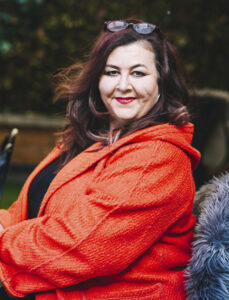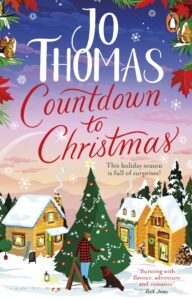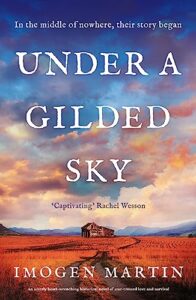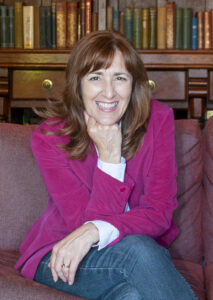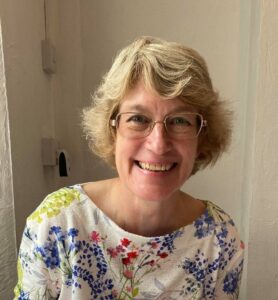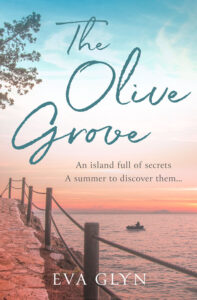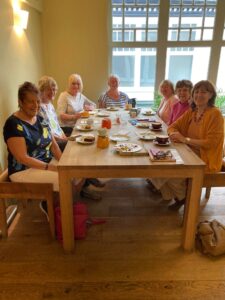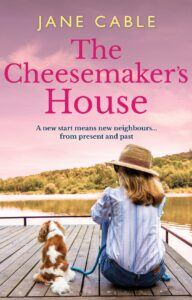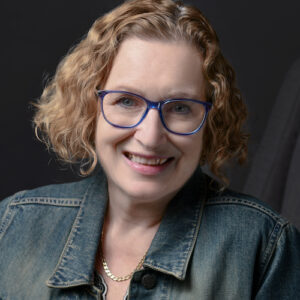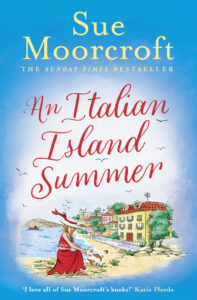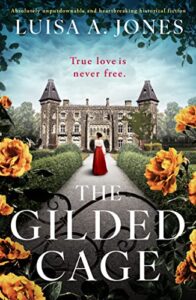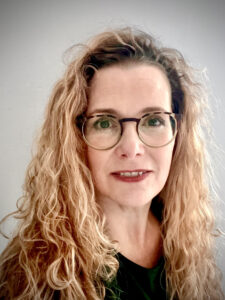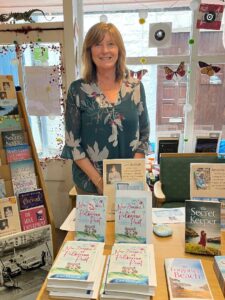 One of the many things I’ve learned as a writer is the importance of location. This isn’t about the settings of novels so much, but rather places where it’s possible to escape from day-to-day life and become fully immersed in a story in the making.
One of the many things I’ve learned as a writer is the importance of location. This isn’t about the settings of novels so much, but rather places where it’s possible to escape from day-to-day life and become fully immersed in a story in the making.
Most authors, when at home, tend to write in whatever space they have created for the purpose, anything from a desk in the corner of a room to a dedicated office or (my personal dream) a writing hut in the garden. When the opportunity arises, though, the chance to go away—especially with other writers—is the perfect mix.
Although I’m lucky enough to ‘retreat’ with four of my writing friends each year, usually on an escape into the Shropshire Hills, I’ve also enjoyed a few Cornish writing experiences through The Writing Retreat, superbly run by Jane Moss and Kath Morgan, who not only offer their insight and experience through optional tutoring and one-to-ones they also provide plenty of personal time to write. I’m booked onto my third retreat with them next March and can’t wait—though I’ll have to diet before I go so that I can enjoy the delicious meals they dish up every day!
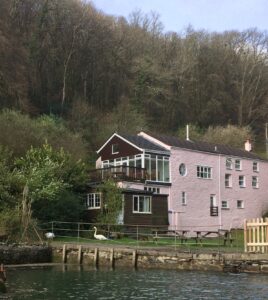 My most memorable stay with Jane and Kath so far took place a few years ago in a truly remarkable location: the Old Sawmills, a property situated on a secluded creek off the River Fowey in Cornwall.
My most memorable stay with Jane and Kath so far took place a few years ago in a truly remarkable location: the Old Sawmills, a property situated on a secluded creek off the River Fowey in Cornwall.
I was deep into the writing of a book I hoped would be the first in a romance series, set in the fictitious town of Polkerran Point (also in Cornwall), which had several parallels with the town of Fowey and the village of Polruan, situated further down the river from the isolated creek that is home to Old Sawmills.
This fabulous property sits on a tidal inlet, only reachable by boat at high tide or by walking through the woods from Golant or uphill and down dale from Fowey (a much longer route).
The mill building has a fascinating history spanning centuries and was converted some years ago into accommodation, with a music studio built on the lower ground floor. Many musicians have stayed there over the years, and some iconic albums have been recorded in this distinctive location, including Oasis’s Definitely Maybe, and several by Muse, including Showbiz and Origin of Symmetry.
Stalled in my writing for months, once installed in my room at Old Sawmills, I quickly realised I’d found my happy place. My bedroom overlooked the top end of the creek, beautiful in any season, and sat in the window there or curled up on a squashy leather sofa in the light, bright sitting room, the words flowed.
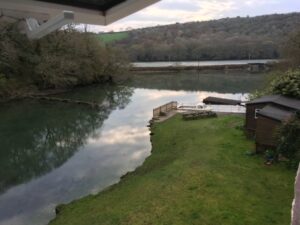 Perhaps it’s not surprising. Not only had many musicians created their masterpieces there, but Kenneth Grahame is also believed to have been inspired to write Wind in the Willows after picnicking in a little creek off the River Fowey—allegedly this one—an experience that is reflected in the opening chapter and describes the setting perfectly.
Perhaps it’s not surprising. Not only had many musicians created their masterpieces there, but Kenneth Grahame is also believed to have been inspired to write Wind in the Willows after picnicking in a little creek off the River Fowey—allegedly this one—an experience that is reflected in the opening chapter and describes the setting perfectly.
For myself, not only did staying at Old Sawmills give me the space and opportunity to pour my heart into my book—now published as New Dreams at Polkerran Point—but the setting of the recording studio will be a key location in the third book in the series.
Currently for sale, who knows what the future holds for Old Sawmills? In my dreams, a reclusive writer will buy it and happily sit in the conservatory, nature all around, as they pen novel after novel, lost in a world of their own creation.
Visit https://www.thewritingretreat.co.uk/ for more information.

